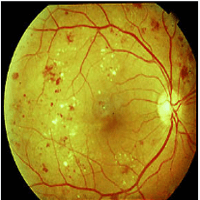Good vision is essential for overall quality of life, and diet plays a major role in protecting eye health. Vegetables are particularly important because they provide essential vitamins, minerals and antioxidants that support vision and help prevent age-related conditions. In this guide, we explore the most important vegetables good for the eyes, their nutritional benefits, and practical ways to add them to your daily diet.
Why Vegetables Are Important for Eye Health
Nutrients for Healthy Vision
Vegetables are a natural source of vital nutrients such as vitamin A, vitamin C, vitamin E, lutein and zeaxanthin. These nutrients protect the eyes from oxidative stress, strengthen the retina, and support the cornea.
Regular intake of nutrient-rich vegetables also reduces the risk of common conditions like cataracts, glaucoma and age-related macular degeneration (AMD). A diet that includes a wide variety of vegetables that are good for your eyes helps maintain healthy vision throughout life.
The Role of Antioxidants
Antioxidants in vegetables act as protective agents against free radicals, which damage eye tissues and accelerate ageing. Lutein, zeaxanthin and beta-carotene are among the most important antioxidants for vision health. They filter harmful blue light, reduce oxidative stress, and protect photoreceptor cells.
Incorporating antioxidant-rich vegetables daily supports long-term eye health and may slow the progression of degenerative conditions, keeping vision clearer for longer.
Top Vegetables for Eye Health
Spinach and Kale
Spinach and kale are packed with lutein and zeaxanthin, which protect the retina from harmful light and oxidative stress. These leafy greens also contain vitamin K, vitamin C and beta-carotene, all essential for overall eye health.
Regular consumption can help reduce the risk of cataracts and AMD. Adding these vegetables to salads, smoothies, or cooked dishes is one of the most effective ways to naturally protect your eyesight.
Carrots and Sweet Potatoes
Carrots and sweet potatoes are excellent sources of beta-carotene, which the body converts into vitamin A, vital for night vision and corneal health. A deficiency in vitamin A can lead to dryness, poor night vision, and other ocular problems.
Including carrots and sweet potatoes in meals helps protect the eyes from vision loss. Their versatility makes them easy to incorporate into soups, stir-fries, or as roasted side dishes.
Broccoli
Broccoli is a cruciferous vegetable rich in vitamin C, which helps protect the eye’s lens from oxidative damage. It also provides lutein, zeaxanthin and small amounts of vitamin A. Broccoli supports healthy blood vessels in the eyes and reduces the risk of cataracts.
Eating broccoli regularly, whether steamed, stir-fried or added to soups, helps preserve eye health by strengthening ocular tissues and combating free radical damage effectively.
Bell Peppers
Bell peppers, especially red and yellow varieties, are loaded with vitamin C, which supports the health of eye blood vessels. They also contain beta-carotene and lutein, offering protection against cataracts and macular degeneration.
Eating raw bell peppers in salads or lightly cooking them helps preserve their nutrients. Their vibrant colours signal the abundance of carotenoids, which are crucial for eye function and reducing age-related vision problems.
Avocados
Avocados are rich in lutein, zeaxanthin and healthy monounsaturated fats that improve nutrient absorption. They protect the retina and filter harmful light rays, reducing oxidative stress.
Avocados also provide vitamin E, which helps combat free radicals that damage eye tissues. Additionally, incorporating avocados into salads, sandwiches, or as spreads enhances eye health and contributes to overall well-being. Their fat content makes them excellent for improving the absorption of carotenoids from other vegetables.
Red Cabbage
Red cabbage is high in anthocyanins, powerful antioxidants that improve circulation and protect the delicate blood vessels in the retina. It also provides vitamin C and beta-carotene, which help preserve lens clarity.
Regular consumption of red cabbage supports healthy vision by reducing oxidative stress and strengthening connective tissues in the eyes. Whether consumed raw in salads or lightly cooked, red cabbage is a valuable addition to an eye-healthy diet.
Green Peas
Green peas are an underrated source of lutein, zeaxanthin, vitamin C and zinc. These nutrients collectively protect the retina and help reduce the risk of AMD.
Peas also provide plant-based protein and fibre, making them a wholesome choice for overall health. Including green peas in soups, curries, or vegetable mixes boosts eye health while supporting daily nutritional needs. Their antioxidants strengthen the eye’s defences against light-induced damage.
Swiss Chard
Swiss chard provides a rich supply of lutein, zeaxanthin, vitamin A and vitamin C. These nutrients are essential for maintaining retinal function and preventing oxidative stress.
The leafy green is also a source of magnesium and iron, which support overall blood circulation and oxygen delivery to the eyes. Regular consumption of Swiss chard helps reduce the risk of degenerative eye diseases and ensures proper nourishment of retinal tissues.
Asparagus
Asparagus is packed with vitamin A, vitamin C, vitamin E and glutathione, all of which protect the lens from oxidative damage and support retinal health. Its unique combination of antioxidants and minerals helps maintain clear vision and prevent cataracts.
Asparagus is best consumed lightly steamed or grilled to preserve nutrients. Regular inclusion of asparagus supports long-term eye health and contributes to an overall antioxidant-rich diet.
Collard Greens
Collard greens are rich in lutein, zeaxanthin and vitamin K, which protect against cataracts and AMD. They also contain calcium and folate, supporting general health alongside vision.
Collard greens are particularly beneficial for older adults, helping preserve retinal function and protect ocular tissues from age-related decline. Adding them to soups, stews, or sautés ensures a consistent intake of these protective nutrients, which naturally strengthen the eyes over time.
How These Vegetables Benefit Your Eyes
Lutein and Zeaxanthin
Lutein and zeaxanthin are carotenoids concentrated in the retina and lens. They act as natural filters for blue light, reduce oxidative stress, and protect against age-related macular degeneration. Regular intake through leafy greens, peas and avocados ensures long-term eye health.
Beta-Carotene for Night Vision
Beta-carotene converts into vitamin A, essential for the production of rhodopsin, a protein in the retina that supports night vision. Vegetables like carrots and sweet potatoes ensure the eyes function effectively in low-light conditions.
Vitamin A for Healthy Eyes
Vitamin A is vital for maintaining the cornea’s health and preventing dryness. It also supports proper retinal function. Including vitamin A-rich vegetables like spinach, kale, and asparagus strengthens the eye’s defences against infections and vision problems.
How to Include These Vegetables in Your Diet
Simple Recipes for Eye Health
Incorporating eye-friendly vegetables, good for eye health, can be easy. Smoothies with spinach and kale, soups with broccoli and peas, and roasted carrots or sweet potatoes are simple ways to include nutrient-rich foods in meals.
Adding Vegetables to Daily Meals
Adding vegetables to sandwiches, salads, and stir-fries ensures a consistent intake of nutrients. Substituting unhealthy snacks with raw bell peppers, carrot sticks, or avocado dips helps maintain eye health while improving overall diet quality.
Other Ways to Maintain Eye Health
Regular Eye Exams
Routine eye check-ups are vital for detecting early signs of eye disease and monitoring retinal health. Eye tests allow for timely interventions, preventing conditions like glaucoma or AMD from causing permanent vision damage.
Healthy Lifestyle Choices
Maintaining a balanced diet, exercising regularly, staying hydrated and getting adequate sleep all support eye health. A holistic lifestyle ensures nutrients reach the eyes via the fruits and vegetables that are good for the eyes and reduces the risk of chronic conditions.
Take a Rest From the Computer Screen
Following the 20-20-20 rule, where every 20 minutes, look at something 20 feet away for 20 seconds. This helps reduce eye strain caused by prolonged screen time, helping protect against digital eye fatigue.
Stop Smoking
Smoking accelerates oxidative damage in the retina and increases the risk of cataracts and macular degeneration. Quitting smoking supports both ocular and overall health, improving circulation and nutrient delivery to the eyes.
Wear Good Sunglasses
UV radiation damages the retina and lens. Wearing sunglasses that block 100% UVA and UVB rays protects the eyes from sun-related damage. It also helps reduce the risk of long-term vision problems.









